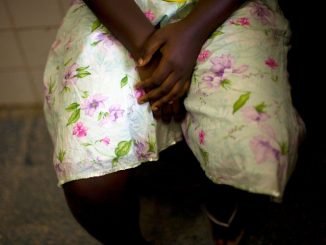
Kampala, Uganda | URN | More than 4.1 million girls around the world will undergo Female Genital Mutilation- FGM during the lockdown because they are out of school due to the COVID-19 pandemic.
This is according to the State of World Population report released on Tuesday 30, June 2020 by the United Nations Population Fund (UNFPA).
The report which highlights the plight of the girl child shows that during the lockdown, girls will face 19 harmful practices that include; breast ironing, virginity testing, female genital mutilation, child marriages and extreme bias against daughters in favor of sons.
According to the report, an estimated 4.1 million girls will be subjected to FGM while 13 million girls under the age of 18 will be forced into marriages due to the closure of schools as government’s try to forestall for the spread of COVID-19.
Dr Natalia Kanem, the UNFPA executive director says that the on-going pandemic makes it hard to stop bad practices when many girls are now at home not going to schools and left at the hands of people surrounding them.
“Progress has been made in ending some harmful practices worldwide, the COVID-19 pandemic threatens to reverse gains. A recent analysis revealed that if services and programmes remain shuttered for six months, an additional 13 million girls may be forced into marriage and 2 million more girls subjected to female genital mutilation between now and 2030,” Dr Kanem said.
According to UNFPA, the prevalence of FGM and child marriages had reduced globally last year before the pandemic was declared. However, all of this could go to waste. To date, 55 million women globally have experienced FGM, this number by next year could go up to 57 women.
With such grim figures, Dr Kanem says that it is important for countries to focus on investing in ending the negative practices. She says countries need to invest USD 34 billion in the next 10 years to end the practices.
Read Also: Minister Mutuuzo discourages teenage girls from labia elongation
“Ending child marriages and female genital mutilation worldwide is possible within 10 years by scaling efforts to keep girls in school longer and teach them life skills and to engage men and boys in social change,” she said.
According to UNFPA, investments totaling up to 3.4 billion a year up to 2030 would end both FGM and child marriages in the country and end the suffering of 84 million girls.



